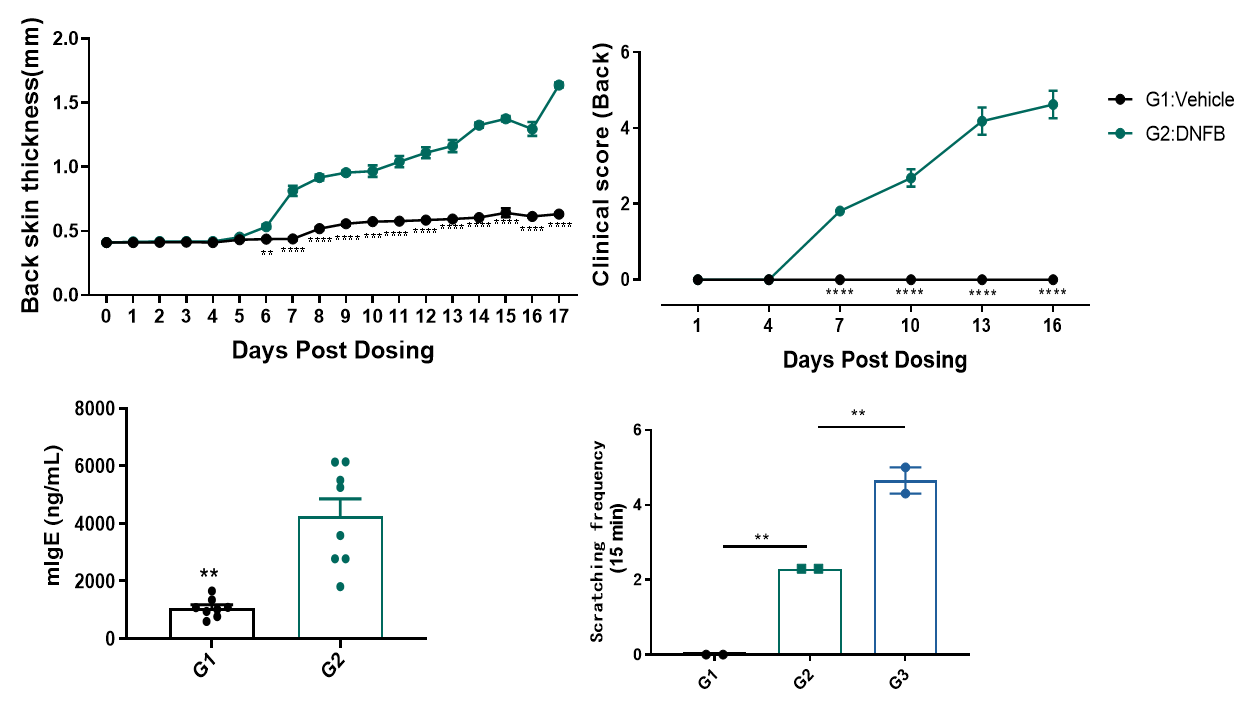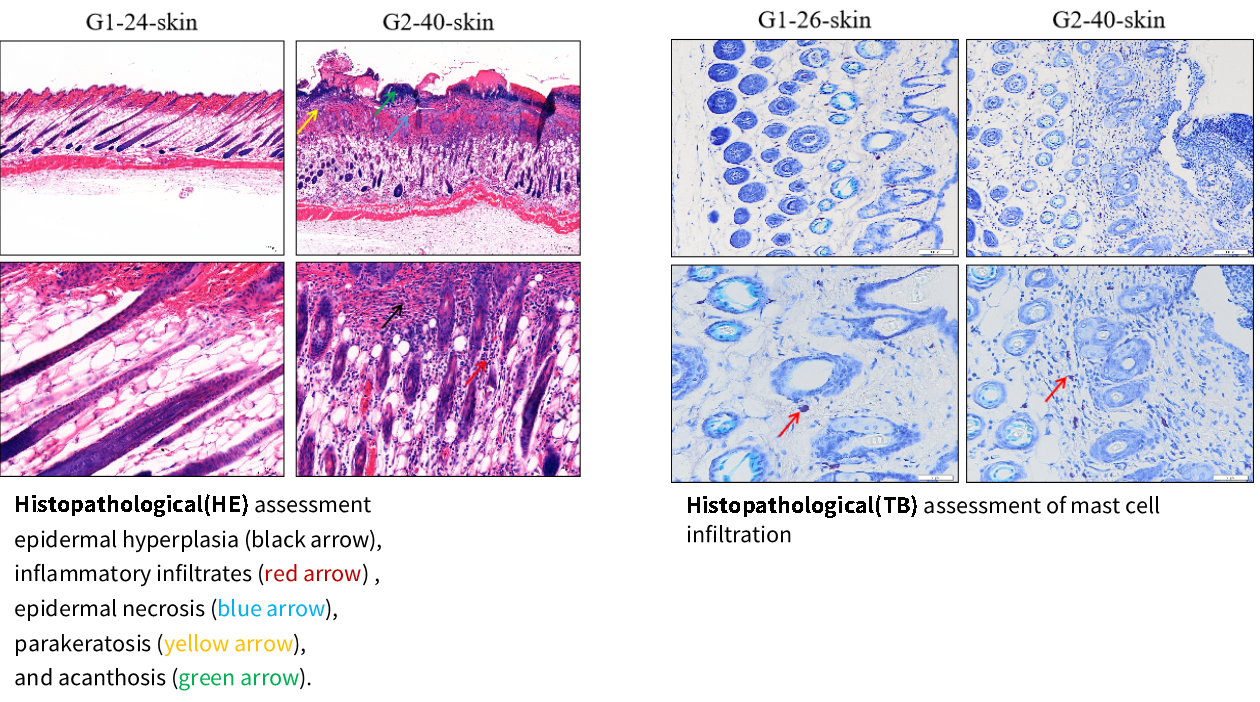Atopic dermatitis (AD) is a condition that causes dry, itchy and inflamed skin. It's common in young children but can occur at any age. Atopic dermatitis is long lasting (chronic) and tends to flare sometimes.

1. OXA induced AD model

Validation data
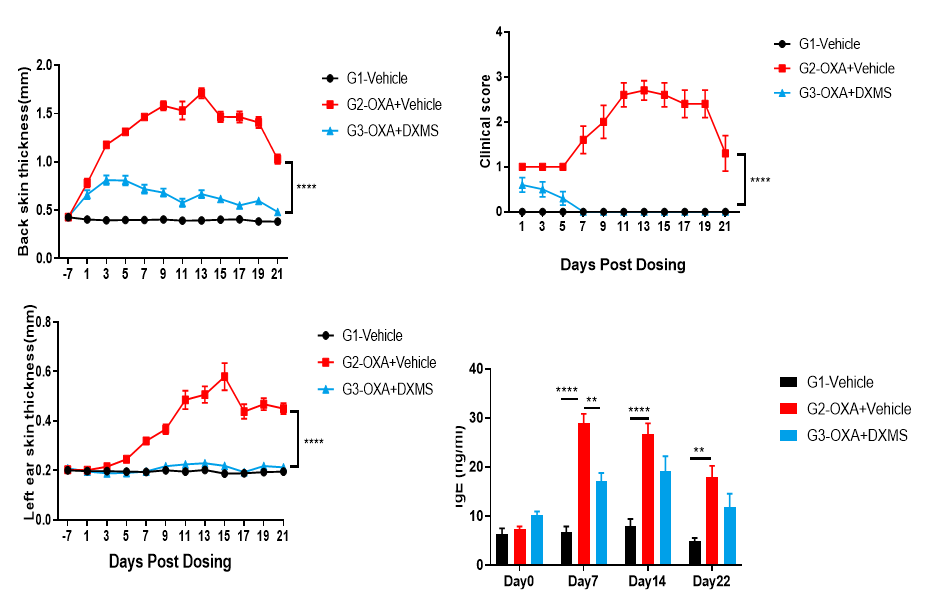
Compared with G2 (the OXA modeling group), the skin thickness of mouse back (upper left) and ear (upper right) was significantly decreased after dexamethasone administration, so were the clinical score (lower left), and the serum IgE levels (lower right). The results demonstrate that OXA-induced atopic dermatitis model can be used for efficacy testing. DXMS: dexamethasone.
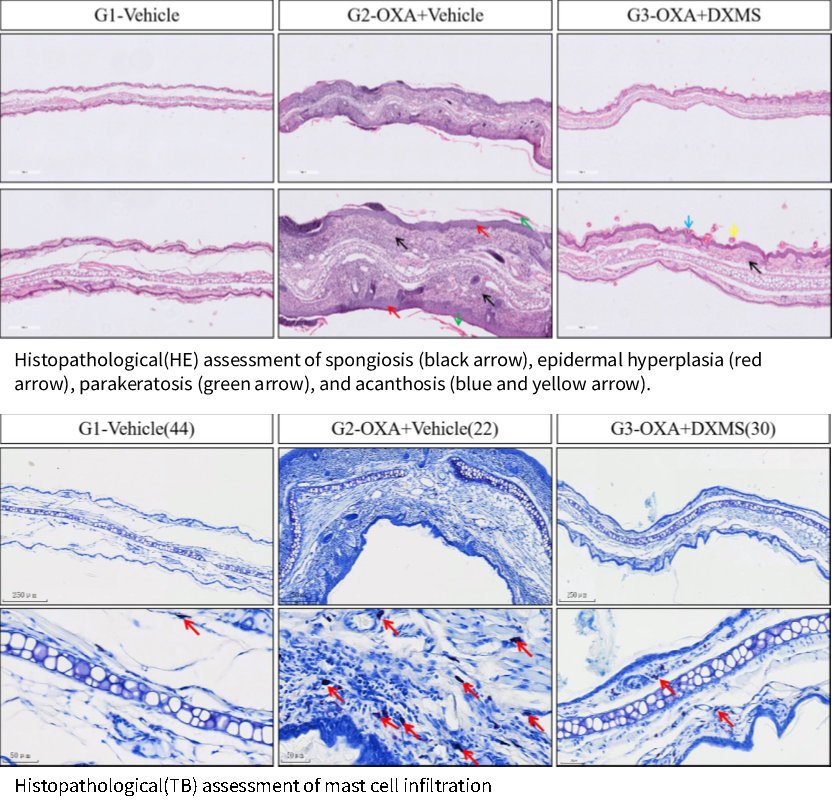
2. MC903 induced AD model
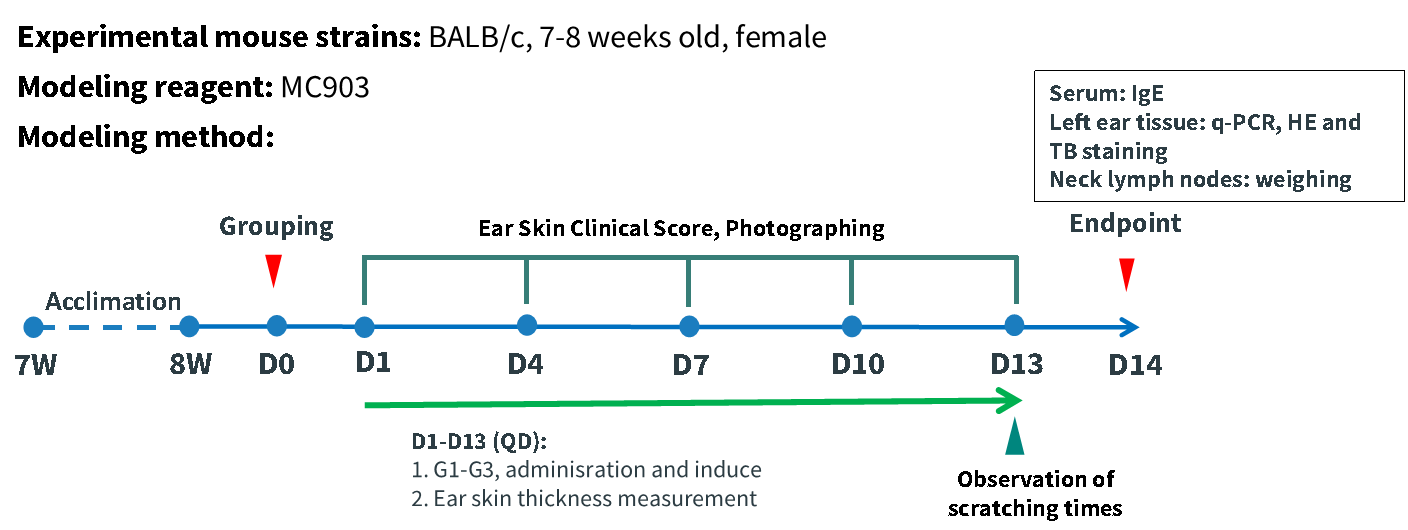
Validation data
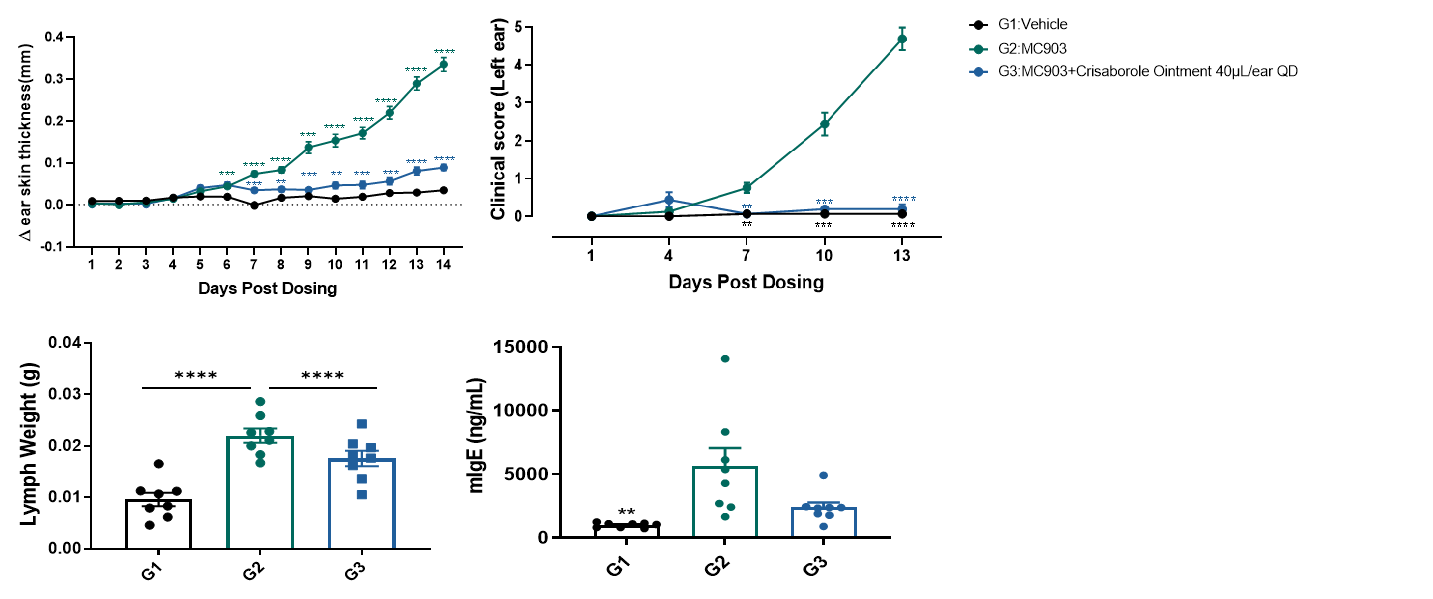
MC903 induces atopic dermatitis-like inflammation in BALB/c mice, and the efficacy of Crisaborole (PDE4i) was confirmed
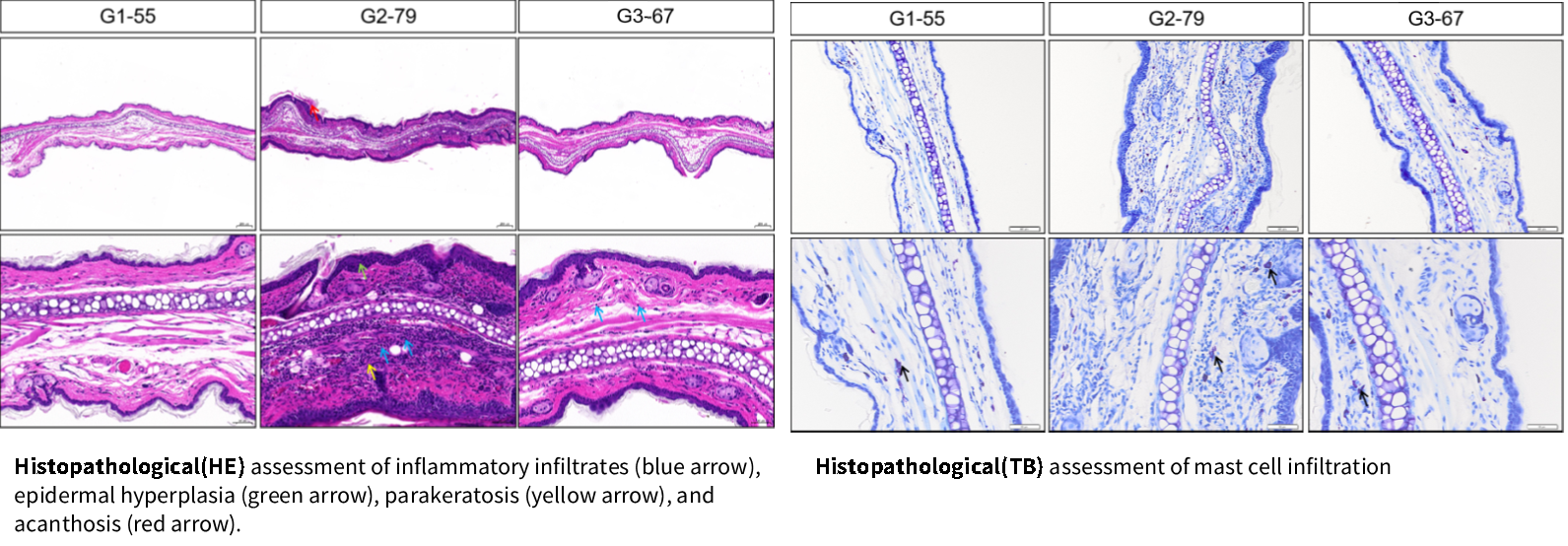
3. Evaluation of Tezepelumab in Balb/c-hTSLP/hTSLPR-AD Mice(Strain NO. T059652)
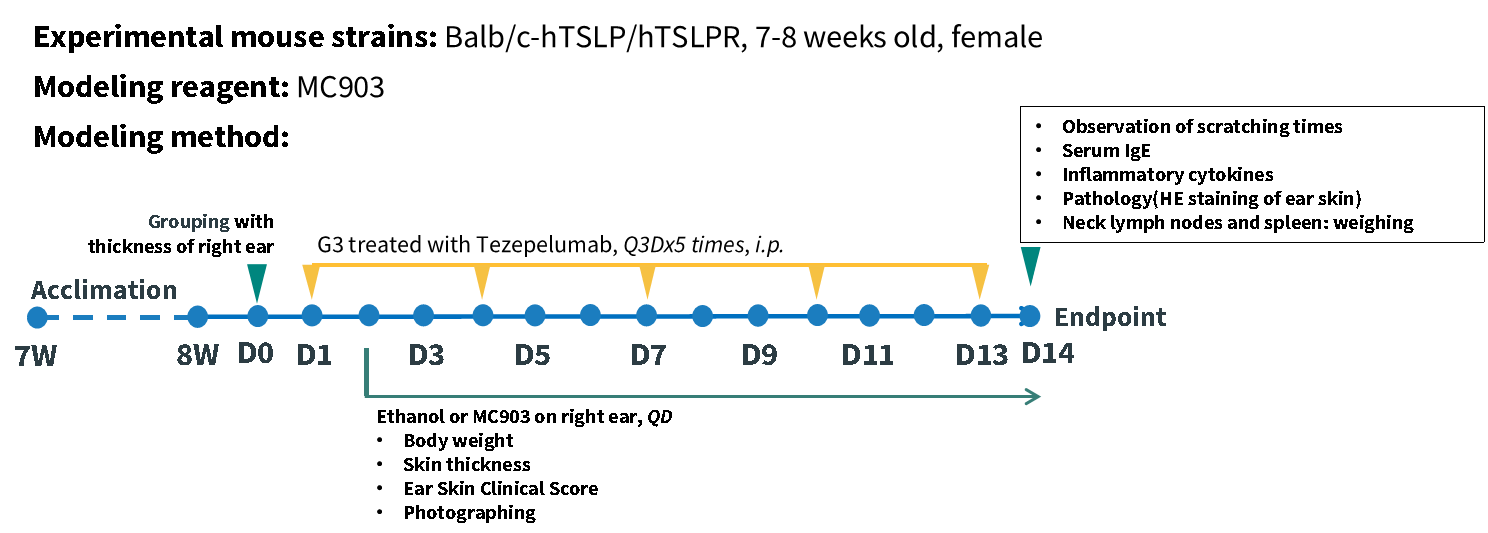
Validation data
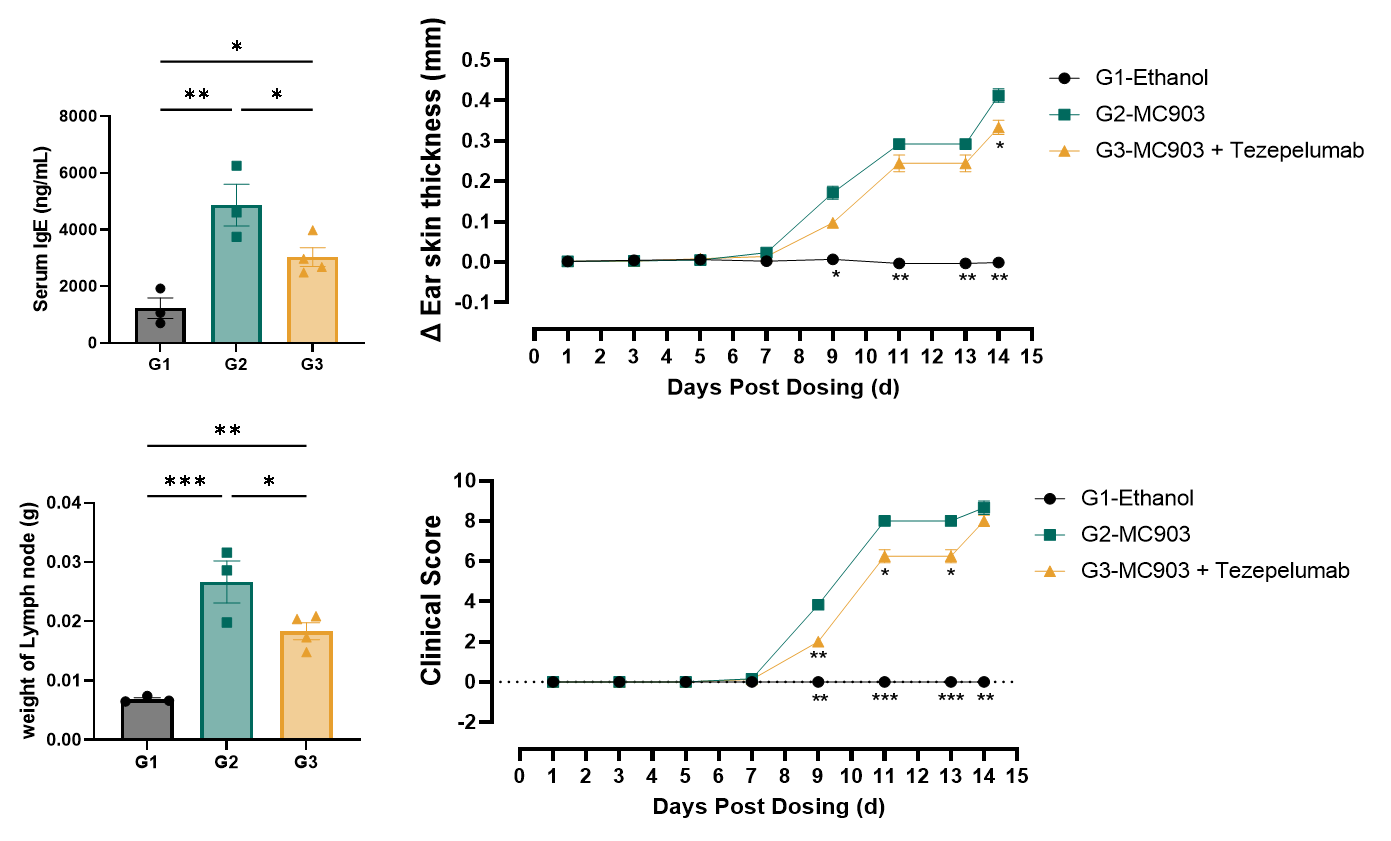
The efficacy of Tezepelumab (anti-TSLP) in the treatment of AD was confirmed on Balb/c-hTSLP/hTSLPR Mice.

A mixed Th2/Th1 immune response is triggered by MC903/vitamin D3 treatment.
Tezepelumab administration significantly reduces levels of inflammatory cytokines, including Th1 Th2, in AD skin sites.
4. DNFB induced AD model

Validation data
